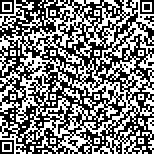| 引用本文: |
刘喆雯, 朱文雄, 陈其华.基于六经开阖枢理论探赜遗精治疗[J].湖南中医药大学学报,2024,44(5):873-877[点击复制] |
|
| |
|
|
| 本文已被:浏览 2418次 下载 1087次 |
| 基于六经开阖枢理论探赜遗精治疗 |
| 刘喆雯,朱文雄,陈其华 |
| (湖南中医药大学, 湖南 长沙 410208;湖南中医药大学第一附属医院, 湖南 长沙 410007) |
| 摘要: |
| 六经开阖枢理论首见于《黄帝内经》,阐述三阴三阳为天地之道、生杀之本的观点,强调通过调节枢机开阖以实现一气周流无碍,气血阴阳平衡。兹从六经阴阳开阖枢理论探赜遗精的治疗,认为肝、脾、肾枢机斡旋失司、开阖失调是遗精发生的关键,分而论之为土湿阳衰、肝木不升、水火失交、肾虚水寒,从而出现气化不利,加重壅塞,最终导致遗精。因此,治疗应强调恢复枢机开阖之力,调控肝、心、脾、肾各脏气机升降出入的动态平衡,应用疏肝解郁、交通心肾、温肾助阳等治法,引导厥阴、少阴、少阳等经脉正气回归,达到气血循行通畅、脏腑功能恢复的目的,为遗精的临床治疗提供新思路。 |
| 关键词: 《黄帝内经》 六经 开阖枢 遗精 交通心肾 中医药 |
| DOI:10.3969/j.issn.1674-070X.2024.05.023 |
| 投稿时间:2023-09-11 |
| 基金项目:陈其华全国名老中医药专家传承工作室建设项目;湖南省卫生健康委员会科研计划项目(202204083613);湖南省中医药科研计划课题项目(B2023096);湖南中医药大学研究生创新课题项目(2022CX37)。 |
|
| Treatment of spermatorrhea based on the theory of "opening, closing, and pivoting of six meridians" |
| LIU Zhewen, ZHU Wenxiong, CHEN Qihua |
| (Hunan University of Chinese Medicine, Changsha, Hunan 410208, China;The First Hospital of Hunan University of Chinese Medicine, Changsha, Hunan 410007, China) |
| Abstract: |
| The theory of "opening, closing, and pivoting of six meridians" first appeared in Huang Di Nei Jing (Huangdi's Inner Classic), which expounds the view that three yin and three yang serve as the law of heaven and earth and the beginning of birth and death, and emphasizes that the unimpeded qi circulation all over the body and the balance between yin and yang are achieved by regulating Shuji (the key places responsible for regulating qi movement in the body). This article explores the treatment of spermatorrhea based on the theory of "opening, closing, and pivoting of six meridians", and believes that dysfunction of the liver, spleen and kidney, and disorder of Shuji in opening and closing are crucial to the onset of spermatorrhea. Specifically, dampness and yang deficiency of the spleen (earth), failure of the liver (wood) qi to rise, disharmony between the heart (fire) and kidney (water), and coldness due to kidney (water) deficiency lead to impaired qi transformation and aggravated obstruction, and eventually result in spermatorrhea. Therefore, the treatment should emphasize restoration of the Shuji in opening and closing, and regulation of the dynamic balance of qi activity of the liver, heart, spleen, and kidney in ascending, descending, entering, and exiting. With the therapeutic methods including soothing the liver to relieve depression, coordinating the heart and kidney, and warming the kidney to assist yang, and by guiding the meridians of Jueyin, Shaoyin, and Shaoyang to return to normal, the purpose of smooth circulation of qi and blood, and restoration function of the zang-fu organs can be achieved, thereby providing new ideas for the clinical treatment of spermatorrhea. |
| Key words: Huang Di Nei Jing (Huangdi's Inner Classic) six meridians opening, closing, and pivoting spermatorrhea coordinating the heart and kidney Chinese medicine |
|

二维码(扫一下试试看!) |
|
|
|
|




